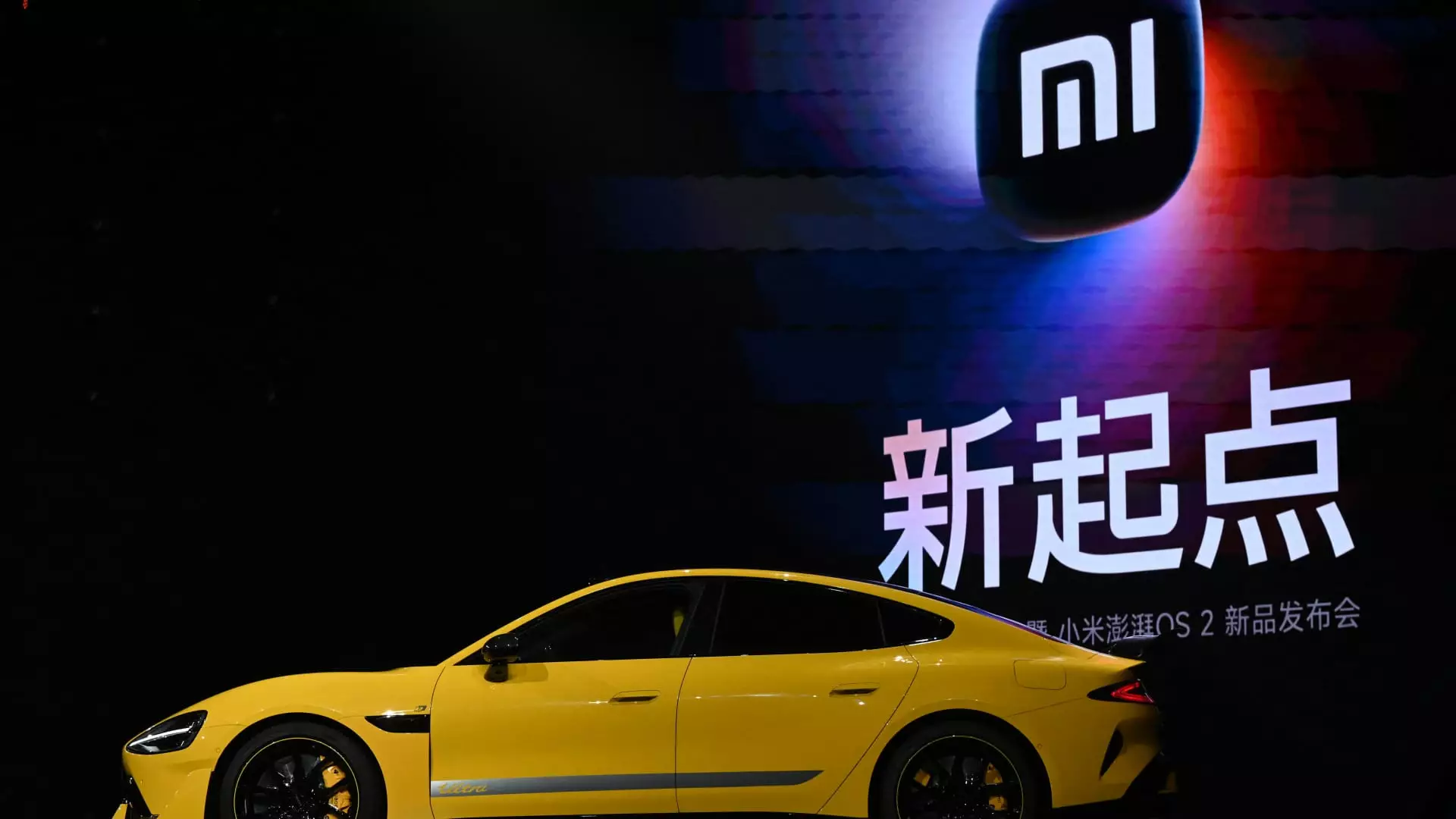In a bold move that has captivated industry observers, Xiaomi, a name predominantly recognized for its smartphones and consumer electronics, has made significant strides in the electric vehicle (EV) sector. As of October 2023, the company has reported the delivery of over 20,000 units of its SU7 electric vehicle in just one month, demonstrating its capacity to meet the growing demand in an increasingly competitive market. The company has set an ambitious target to deliver 100,000 SU7 vehicles by the end of November, further solidifying its commitment to becoming a formidable player in the EV landscape.
This audacious expansion into the automotive arena began in 2021 when Xiaomi announced its intention to manufacture electric cars. Following this announcement, the company quickly began constructing a dedicated manufacturing facility, underscoring its serious commitment to this venture. Launching the initial model of the SU7 in March at a price point considerably lower than Tesla’s Model 3 was a strategic move to attract budget-conscious consumers. With pricing nearly $4,000 less than Tesla’s cheapest offering in China, Xiaomi has positioned itself effectively to appeal to a broad customer base in this rapidly evolving market.
However, the electric vehicle domain is not without its challenges. Xiaomi faces tough competition from established players like Xpeng and Nio. It is noteworthy that both these rivals took approximately six years to achieve the milestone of delivering 100,000 electric vehicles. In stark contrast, Xiaomi’s rapid delivery numbers suggest that it could reach this milestone much sooner. Tesla, another benchmark in the industry, took twelve years to achieve a similar feat, highlighting how Xiaomi’s current pace is reshaping norms.
Xpeng recently reached a monthly sales record exceeding 20,000 vehicles; this figure was significantly bolstered by its lower-cost brand, Mona. Meanwhile, Nio has struggled to maintain consistent monthly deliveries above the 20,000 mark, indicating a disparity in the operational performances of these emerging companies. Zeekr, a brand launched by Geely, made headlines with its rapid production of over 100,000 vehicles within just 1.5 years, further emphasizing the fierce competitiveness within the industry.
Analysts have reacted positively to Xiaomi’s impressive delivery figures. Brian Tycangco from Stansberry Research commented that these numbers affirm that Xiaomi is “going to be a force to reckon with.” In fact, industry insights reveal that Xiaomi’s electric vehicle profit margins have been competitive, especially when compared to Xpeng’s figures from earlier this year. The company’s aggressive scaling of production indicates a clear upward trajectory in its gross margins, aligning with the broader industry trends.
Moreover, Xiaomi is poised to further diversify its offerings with the launch of the high-performance SU7 Ultra, which has garnered instant interest. Within just ten minutes of its preorder announcement, the company recorded over 3,600 deposits. This enthusiasm suggests a strong market appetite for higher-end models, and analysts predict that the introduction of the SU7 Ultra will likely buoy sales of the premium SU7 Max model.
Despite the promising metrics, Xiaomi’s pathway is not entirely without obstacles. While the automaker has set its sights on expanding its reach beyond Chinese borders, the company cautioned that any international rollout would take at least two to three years. This timeline presents a challenge, considering the fast-paced developments in the global EV market. As established brands and new entrants alike race to innovate and capture market share, Xiaomi’s domestic-only sales strategy could limit its competitive edge in the long run.
Additionally, Xiaomi is competing against not only other domestic brands but also a host of international players, including Tesla, which remains a dominant force in China. The challenge of establishing a foothold within a diversified and saturated market is immense and requires constant innovation and strategic pricing to maintain consumer interest.
As Xiaomi gears up for a future filled with opportunity and competition, industry watchers will be keenly observing how this tech giant navigates the complexities of the electric vehicle sector. Its ability to sustain growth while adapting to rapidly changing market conditions will be pivotal in determining its longstanding success in this lucrative industry.

